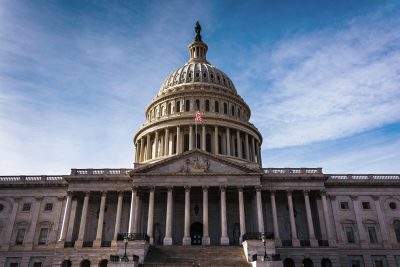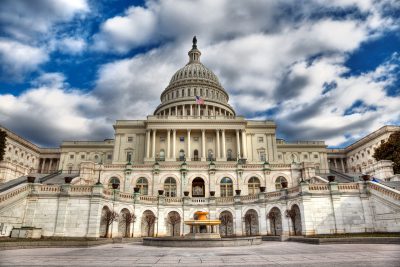Immigration 101
The U.S. immigration system is complex and can be difficult to understand. These resources provide key data points, historical information, and background on hot topics in immigration. Learn the basics about immigration. Immigration in the United States is complex and ever-evolving. Start here to understand the fundamental aspects of immigration policy, its history, and its impact on both individuals and the country at large. Learn commonly used terms about immigration law and how the U.S. immigration system is designed. Explore layered topics like how and whether immigrants can become citizens, as well as what individual protections look like under the law.
How the United States Immigration System Works
- How the Immigration System Works
- June 23, 2024
U.S. immigration law is very complex, and there is much confusion as to how it works. This fact sheet provides basic information…
Read More
Birthright Citizenship in the United States
- Birthright Citizenship
- October 16, 2024
This fact sheet explains birthright citizenship, the Fourteenth Amendment, and its interpretations. Who is…
Read More
Asylum in the United States
- Asylum
- August 27, 2014
Asylum seekers must navigate a difficult and complex process that can involve multiple government…
Read More
Labor Pains: How Our Broken Immigration System Hurts All Workers
While most employers are law-abiding, some unscrupulous employers have a secret weapon for keeping down wages and working conditions—our broken immigration system. Bad apple employers hire undocumented immigrants, subject them to unsafe working conditions, pay them less than the market wage, or don’t pay them at all. If undocumented workers file a labor complaint or try to form a union, the employer will threaten them with deportation or even call DHS to have the workers deported. Then the workers are whisked into detention or out of the country before they can seek remedies for the labor violations. Most employers don’t get punished for their misconduct, which puts unscrupulous employers at a competitive advantage over law-abiding employers. Read More

Risky Business: Our Broken Employment–Based Immigration System Jeopardizes the American Economy
BY CHARLES H. KUCK* Does Congress's continued failure to fix our broken employment-based immigration system jeopardize our economy, now and in the future? Yes, it does. If we don't have enough employment-based immigrant visas, the best and brightest from around the world will start going somewhere else. We are not only a nation of immigrants; we are a nation of successful immigrants. We attract those who are willing to work hard, better themselves, and strive for success. However, our legal immigration system has made the process of immigration to the United States so difficult, so full of uncertainty, and so lengthy, that folks are now choosing not to come. Read More

Family Ties: A Closer Look at the Problem with Our Family-Based Immigration System
The U.S. immigration system has always promoted family unity by awarding the majority of visas to the families of current U.S. residents, which ensures that close family members are not kept apart. The principle of family unity has long been a central tenet of our immigration laws and has contributed to the economic and social prosperity of our country and immigrant populations. Read More

Immigration Gumbo in the Pelican State
The Pelican State is slowly stepping out as one of the most dynamic immigrant states in the nation. With a New American governor, an immigrant congressman and growing numbers of immigrants calling Louisiana home, the state is emerging as a model for what immigration can do for a state. One of Louisiana’s most famous faces is the state’s Governor Piyush “Bobby” Jindal who was born in Baton Rouge after his parents immigrated to the U.S. for graduate school and distinguished careers. He is the first American governor of Indian descent to serve in the U.S. Read More

Well-Intentioned Brookings Report Falls Short on Solutions
Following a series of roundtable meetings that brought together persons with very diverse opinions on immigration policy, Brookings Institute and the Kenan Institute for Ethics at Duke University recently released Breaking the Immigration Stalemate: From Deep Disagreements to Constructive Proposals. After witnessing the national immigration debates of the past few years, the lead authors—William Galston of Brookings, Noah Pickus of Duke, and Peter Skerry of Boston College—explained that they wanted to “address the problem rather than exploit the politics of the problem” and bring together academics and other experts with divergent perspectives to work through the differences in the room and reach a consensus. Furthermore, the group aimed to start its policy discussion in a different place than Congress has started, and hone in on the problems of past proposals as well as fill in the gaps and make linkages between policy issues. The results are mixed. Read More

Latinos in America, CNN and Refocusing the Immigration Issue
Much has been made of CNN’s seemingly conflicted programming on immigration—on one hand is CNN host Lou Dobbs, unofficial Director of Demagoguery who broadcasts misinformed anti-immigrant rhetoric on a nightly basis; and on the other hand is CNN’s latest documentary, Latinos in America, a two-part series hosted by Soledad O'Brien which takes a closer look at “how Latinos are changing America and how America is changing Latinos.” While many immigration advocates argue CNN “can’t have it both ways,” senior executive producer and vice president of CNN’s documentary unit, Mark Nelson, is angry. He argues that his documentary, Latinos in America, is about Latinos, not Dobbs: Read More

Breaking Down the Problems: What’s Wrong with Our Current Immigration System?
While some characterize our immigration crisis as solely an issue of the 11 to 12 million unauthorized immigrants living in this country, our problems extend beyond the number of undocumented people to a broader range of issues. Read More

Senator Vitter’s Amendment is Gumming Up the Census
By now, we’ve grown accustomed to Senators attempting to score political points at home through anti-immigration amendments, regardless of the topic of the underlying bill. Still, Senator David Vitter’s amendment to the Commerce, Justice and State appropriations legislation, which would cut off financing for the 2010 Census unless the survey includes questions about immigration status, is pretty convoluted—especially for a politician from a state still struggling to recover from the tragedy of Hurricane Katrina. Read More

New Census Data Reveals America’s Immigrant Roots
With CNN due to premiere its Latinos in America special on October 21st and 22nd, and National Hispanic Heritage Month having just drawn to a close, it is well worth considering the extent to which the immigrant experience is part of daily life in the United States for both Latinos and non-Latinos. As the IPC details in a new Fact Check, American Roots in the Immigrant Experience, data released recently by the U.S. Census Bureau illustrates both the breadth and depth of America’s immigrant roots. Read More

American Roots in the Immigrant Experience
The U.S. Census Bureau recently released data on the Latino population of the United States that underscores the extent to which the immigrant experience is embedded in the social (and political) fabric of the United States. The political significance of these statistics is apparent in the most recent IPC Fact Check. Latinos comprise the fastest-growing group of voters in the United States. The number of naturalized U.S. citizens is increasing rapidly and the electoral clout of New American voters who share a direct, personal connection to the immigrant experience—that is, naturalized citizens and the U.S.-born children of immigrants—is on the rise. Read More
Make a contribution
Make a direct impact on the lives of immigrants.

